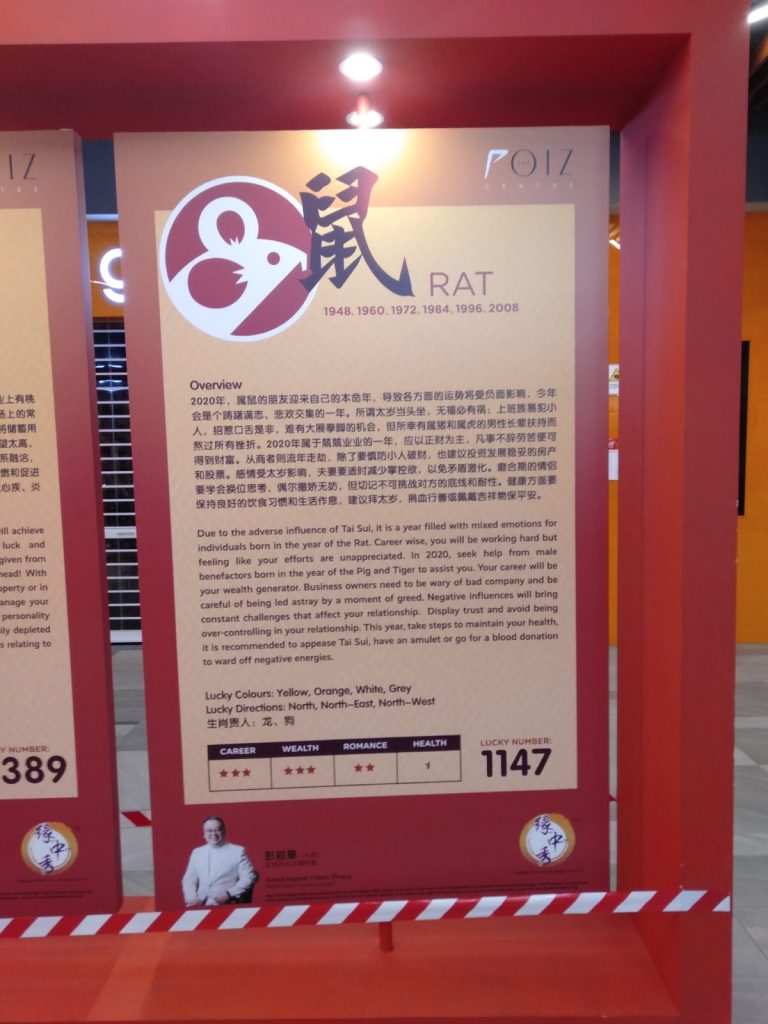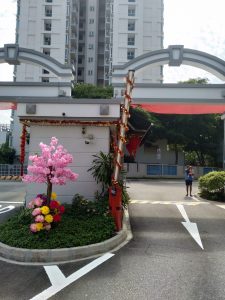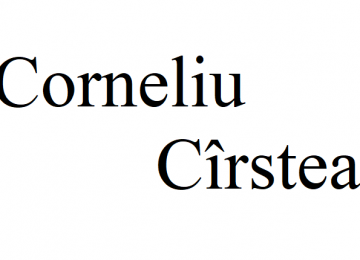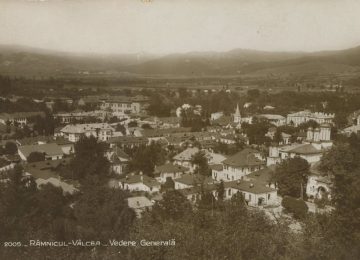Tudor Vlădescu, reporting from Singapore
There are four major feasts during late-autumn-to-wintertime in Singapore, which is not real winter, as the temperature rarely goes down below 30 Celsius. At night. The season begins with the skulls and cobwebs of Halloween, spills into the Indian Deepavali and is followed closely by the Christian and astronomic new year. The last in line is Chinese New Year, which this time brought about a strange coincidence: among all the other animals of the zodiac, the rat is the least healthy. In the last few days, the number of patients infected with an unknown virus has started to climb steeply, from zero, three days ago – whereas most of the countries that Singapore has commercial links and tourist flow with were already reporting cases – to one two days ago and three today. Fake news such as entire planes being sequestered by the army because of suspiciously sick individuals proved that the city-under-siege mentality is about to set in, which is no news for a city that has always been under siege for different reasons, historical or contemporary. Trailblazing after is the still absent, yet lurking around, powerful emotion called panic. It is a state of paralysis, by far not pleasant, yet very powerful. In final stages, panic turns to being funny, especially if a magic formula is being repeated over and over: “What am I to do? I am being panicky!” Unless the imminent danger turns into disaster, whoever chants such a mantra and takes a look at a mirror might crack a smile or even laugh. That is the moment of grace when the thinking gets clearer and steps towards action may be taken. But that happens only if panic itself turns funny.
It was no laughing matter to feel the panic attack jitters during my childhood in communist Romania, once caused by a joke, albeit a political one. It chanced when an aunt rang me up after she had left our house in the morning, where she and my prankster uncle had stayed for a few days visit. She whispered: “Hurry up and get that note my husband left this morning on the bedside cabinet. Don’t read! Just burn it!” To a child about to experience the rough seas of teenage years, who was passionately reading Alexandre Dumas and was dreaming of mysterious notes leading to daring escapes or court romance and intrigue, such a challenge should have been followed by an enthusiastic quest chase. But sedition against the regime was no laughing matter at a time when the face of the much-beloved leader was smiling with a halo behind, just like a religious icon, in pictures hanging everywhere. At that time, when running after necessities was a daily routine caused by shortage in supplies, when a colleague’s father had been demoted for joking too much about the leader’s speech impediments, becoming a dissident was quite risky. The poem in the note was too funny not to get over the panic attack at once: “Your duty to the motherland/ Lest you’ll be really sorry: / The keeping of the holy lamp,/ May our leaders live in glory!/” Such a joke had the immediate effect of forgetting about the food crisis or energy cuts or of the endemic corruption triggered by them. And the lamp became a symbol of the “ancient regime” which had produced it – as it belonged to my grand-grandparents – and of the quiet resistance to communism.
In those days, the communist party propaganda was unequivocally placing Romania among, even on top of the list of the world developed states. But certain things were a work in progress stage, although the “upgrade of the living standards” was a phrase that popped up frequently in the usual thank you discourses that were aimed at the efforts of the much beloved leader. He alone was allowed to use it in future tense sentences, though. All the other countries, being widowed of such an enlightened leadership, were doomed to choose between the “partially developed” or “the Third World”. Not to mention the imperialist powers, which were hellish at least. No comment.
I have been looking for good jokes in Singapore and occasionally came across some. None as morbid as the official communist discourses or the ones whispered between friends in Romania thirty years ago or more. Maybe their quality was proportional to an impending danger. In the Asian version of New York, many important companies establish branches or move lock stock and barrel because of street safety, observation of most rules by almost everybody and a fluency in street traffic that makes transit a breeze. In such a context, only a crisis may generate humour of a similar class with the communist jokes. And this was confirmed a few days ago, when a Singaporean quipped: “How come we are last among SE Asian countries? We always want to be on the top of all list. This is the Singapore way!” Without any comment on urban infrastructure functionality or cleanliness, the fact is that the epidemic defence plans are visible from the airport to the apartment door: temperature measuring filters and posters with procedures for crisis prevention and management. And the streets are being monitored continuously. For somebody who trespasses rules, as insignificant as, for example, littering, it is not uncommon to get a police ID flashed before the eyes. That comes with a fine, usually quite taxing, and it is issued by somebody who is dressed up as if on the way to a seaside resort. That is the reason why somebody who, in an act of generosity, leaves a few coins as a tip, which is already included in the bill, might have to go back and collect the money because of the calls of the shop assistant and other customers that somebody has forgotten the change. There is no joke in “Tips are illegal in Singapore”. And as a final joke, neither in Romania, where giving a tip is an insult, but in most cases it is an acceptable one. Although the rat seems to be the least clean of the animals of the zodiac, I hope to avoid insulting anybody by wishing you a prosperous year of the rat.
Tudor Vlădescu is our correspondent in Singapore since January 15th, 2020.











